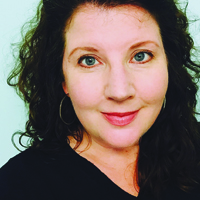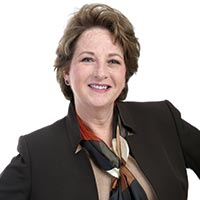When was the last time you looked at your calendar and saw a big block of time with nothing planned? Never, right?
For many, overcommitting has become a way of life, leaving us harried, unhealthy and ineffective. Saying no seems selfish; that's why so many of us end up chairing this group and heading up that committee, until we don't know whether we're coming or going. But when we say yes to everything, we leave less time for the things that really matter, creating a situation in which we don't have enough time to devote to tasks truly important to us.
Entrepreneur and TEDtalk speaker Derek Sivers uses this test when offered an opportunity: "It's either 'Hell, yeah!' or it's 'No.'"
While this advice may seem oversimplified, it does cause you to examine your gut instinct and motivation level. If you say yes out of joy and excitement—or opportunity for growth—that's a good sign. If you say yes only out of a sense of guilt or obligation, how long will those emotions keep you motivated to do your best work for that organization?
It Has to Be Win-Win.
Linda Vos-Graham's accolades include being the first woman inducted into the Michigan Construction Hall of Fame, being honored among the 50 Most Influential Women in West Michigan in 2016 by Grand Rapids Business Journal, and having her company—Vos Glass, from which she retired in April 2016—recognized as a Top Women Owned Business by GRBJ. She has volunteered her time in a leadership capacity to various professional organizations, Mel Trotter Ministries and Grand Rapids Children's Museum. And she has had to learn the art of saying no and balancing her commitments. Here, Vos-Graham shares some of her strategies.
Make the right commitment.
Avoid that initial rush of excitement about being asked to help. Do your homework about the need and expectation, analyze the time you have available, and consider the outcome you wish to have to feel successful. If you do say yes, be committed and follow through.
When asked to sit on a board of directors, research the cause, organization and leadership. Make sure it's a good fit. Talk to others in the organization. Start small; attend an event or join a committee. Avoid diving right in. Volunteering must be win-win, which sounds a bit counterintuitive: Isn't volunteering about giving?
Volunteering can offer vital help to people and organizations in need, but there are also benefits for you. Maybe you want hands-on experience in a new area, like fundraising or strategic planning. Perhaps you want to learn about the cause or meet new people and network.
Say NO.
Be straightforward, honest and sincere. If you can't devote the time and energy needed for the desired impact and results you and the organization want, say no. It has to be win-win. Not participating at the level agreed to will ultimately have a negative effect on the organization's productivity and, perhaps, the cause.
Scale back.
If you find you need to scale back your involvement, be straightforward, honest and sincere. Help develop a phasing-out plan, if logical. You can always dive back in later.
Sacred Downtime
Is there a category for play, naps, meditation, walks or gym time on your calendar? These are often first to go when schedules get hectic. In his book Rest: Why You Get More Done When You Work Less, Alex Soojung-Kim Pang observes "... today's leaders treat stress and overwork as a badge of honor," yet notes both research and anecdotal evidence show that many of the world's best leaders and most creative innovators treated their downtime as sacred, to great effect. Even during the darkest hours of World War II, Winston Churchill took a daily nap.
Give yourself permission to leave that space open and justify it, knowing that downtime makes you more productive overall. Being busy is more of a hindrance than a help; overtime productivity levels are generally much lower than a normal work week, and multitaskers' productivity is also greatly reduced.
Just because you have empty time in your schedule doesn't mean you should fill it with an obligation.
 Written by Jennifer Reynolds. When she's not writing, sailing or buried in a good book, Jennifer Reynolds teaches at GRCC and Jenison International Academy. Transplanted from the Petoskey area to Holland in 2012, she is a big fan of the latter's farmers market and bike paths. She also enjoys kayaking, yoga, and puttering in her kitchen and garden.
Written by Jennifer Reynolds. When she's not writing, sailing or buried in a good book, Jennifer Reynolds teaches at GRCC and Jenison International Academy. Transplanted from the Petoskey area to Holland in 2012, she is a big fan of the latter's farmers market and bike paths. She also enjoys kayaking, yoga, and puttering in her kitchen and garden.
 Linda Vos-Graham.
Linda Vos-Graham.




